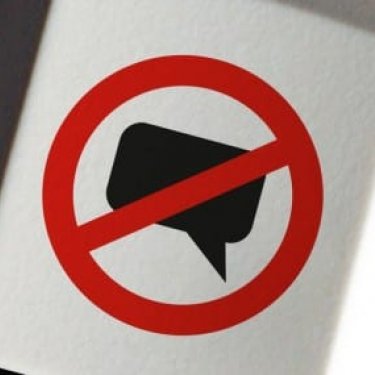Tighter control over social media, massive use of cyber-censorship

Reporters Without Borders (RSF) is concerned about use of the Internet to censor outspoken journalists in Turkey, where new legislation gives the government much more control over social media platforms.
All social media including Twitter, Facebook, Instagram, TikTok and YouTube will be impacted by the amendment to the law on Internet crimes that comes into effect today.
Passed by the Turkish parliament on 29 July, the amendment will force online platforms with more than a million users to send reports to Turkey’s Information and Communication Technologies Authority (BTK) on their response to requests from administrative or judicial authorities to censor or block access to online content.
On an order from a judge or the BTK, the Union of Access Providers (ESB) will also be required to instruct Internet hosts or search engines to execute access blocking decisions within four hours on pain of an administrative fine.
If platforms fail to comply with a requirement under the amendment to store the data of Turkish users in Turkey, they could be ordered to pay an administrative fine of up to 30 million Turkish lira (3.9 million euros), they could be banned from advertising and, as a last resort, they authorities could even impose a drastic reduction in the bandwidth available to them in Turkey.
Platforms are also required to appoint a representative in Turkey who is responsible for implementing Turkish court orders to withdraw content or block access to social media accounts.
“These new provisions give the Turkish government a great deal of control over social media and, if platforms comply with demands from the authorities, many online journalists could be under direct judicial threat,” RSF Turkey representative Erol Onderoglu said. “As all forms of online dissent have already been subjected to systematic and arbitrary interventions, an unprecedented level of censorship on platforms should be expected from today onwards.”
347 articles censored in three months
RSF’s concern about the new amendment is heightened by the fact that, since its adoption on 31 July, RSF has registered no fewer than 347 cases of online articles being censored for constituting an insult, threat to national security, or violation of the “right to be forgotten.” This censorship has been carried out at the request not only of the authorities, but also companies and individuals close to the government, including the president’s son, Bilal Erdogan, and his son-in-law, Berat Albayrak, the current finance and treasury minister.
On the grounds of “protecting personal reputation and rights,” an Istanbul magistrate blocked access to 57 articles implicating the president’s son in a case of clientelism on 13 August. Posted mainly on the Cumhuriyet, BirGün, soL and OdaTV websites on 6 August, they criticized the decision to award a contract worth 280 million Turkish lira (30 million euros) for the construction of public buildings in the Istanbul district of Atasehir to a friend of Bilal Erdogan.
On 30 July, a local magistrate in the city of Gaziantep censored an article by Murat Güres on the Yurt Haberleri website for “attacking the person of the rector Ali Gür.” The article reported that the Higher Education Council had begun investigating the rector for “abuse of office” and “forging documents.” Güres responded by asking a court to overturn this decision on the grounds that the request for the article’s withdrawal within four hours violated the right to information and opened the way to arbitrary decisions.
Three sites completely inaccessible
Without giving any specific grounds, a local magistrate in the southern city of Antakya banned access to the website of the pro-Kurdish daily Yeni Yaşam on 25 September, the same day that that former parliamentarians and other prominent members of the pro-Kurdish party HDP were arrested, above all in the southeastern city of Diyarbakir.
Radio Özgürüz, a website created by Can Dündar, a well-known journalist living in self-imposed exile in Germany, was censored by the BTK on 13 August. To circumvent censorship by the Turkish authorities, Dündar has already had to relaunch the site 21 times since its creation in 2017.
Finally, the BTK blocked access to the OdaTV website in March after two of its journalists were jailed for naming a Turkish intelligence officer who had been killed in Libya. This is the first time in 13 years that OdaTV has been subjected to censorship of this scale. The sites of such pro-government media as Sabah, Yeni Şafak and Takvim have also been censored of late.
Turkey is ranked 154th out of 180 countries in RSF's 2020 World Press Freedom Index.



